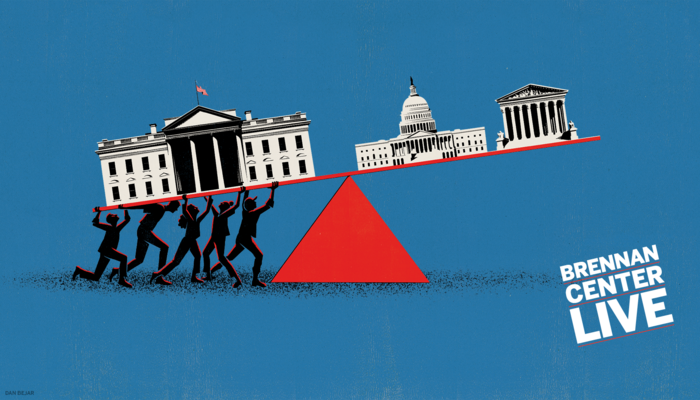The executive branch has amassed increasing power in recent years, challenging the constitutional balance among branches of government. This year alone, the president has ignored the laws passed by Congress to fire leaders of independent agencies without cause, freeze the spending of appropriated funds, and deploy the military as a domestic police force.
Supporters of vast presidential power have a name for this: the unitary executive theory. It’s the idea that the Constitution gives the president full personal control over the executive branch and wide latitude to act unilaterally. While legal scholars debate its scope, in its most expansive form, the theory envisions a kinglike president largely unconstrained by Congress or the courts. Embracing this theory could carry far-reaching consequences for American democracy.
Join us for a virtual event on Tuesday, August 5, at 3 p.m. ET for a timely conversation with historians and legal experts. They will examine the origins of the unitary executive theory, its impact on the modern presidency, and its implications for the future of checks and balances.
Speakers:
- Samuel Breidbart, Counsel, Brennan Center Democracy Program
- Jane Manners, Associate Professor of Law, Fordham University School of Law
- Julian Davis Mortenson, James G. Phillipp Professor of Law, University of Michigan Law School
- Cristina Rodríguez, Deputy Dean and Leighton Homer Surbeck Professor of Law, Yale Law School
- Moderator: Wilfred U. Codrington III, Walter Floersheimer Professor of Constitutional Law, Benjamin N. Cardozo School of Law
